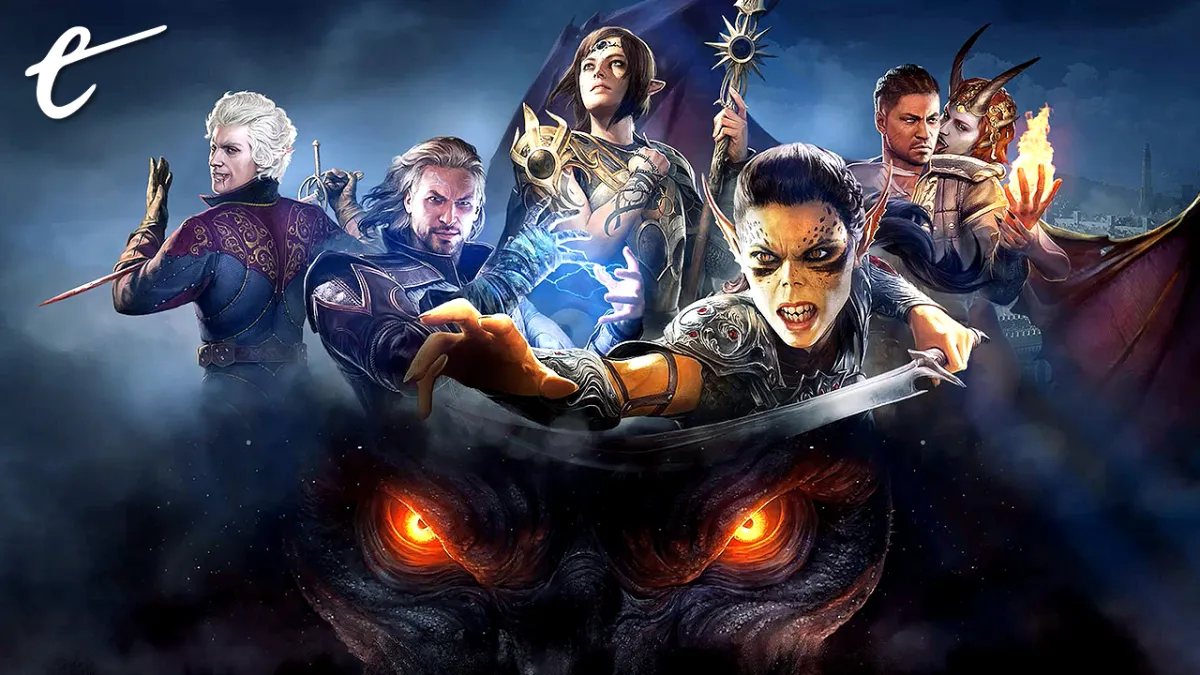If you’ve spent time on social media recently, you’ll likely have come across the discourse about Baldur’s Gate 3 reportedly causing panic among the development community. It’s been a fascinating topic to watch take root and evolve. That’s because it’s an excellent example of how journalism can create narratives from folk devils and moral panics. So, let’s break down the origin and evolution of this controversy surrounding Baldur’s Gate 3.
How Did The Baldur’s Gate 3 Controversy Begin?
Baldur’s Gate 3 is one of the breakout hits of 2023. At the time of writing, it’s the highest rated game of the year on Metacritic and the highest rated game ever on OpenCritic (alongside Super Mario Odyssey). More than just a critical darling, though, it has charmed a legion of fans. Somewhat paradoxically, that’s actually the source of the apparent pushback against the game.
I write ‘apparent’ because it began with a statement and what seems to be a wilful misinterpretation of that statement. The original comment is attributable to Xalavier Nelson Jr, Studio Head of Strange Scaffold (Hypnospace Outlaw; El Paso, Elsewhere), who wrote on X:
Like a lot of people, I'm deeply excited about what the lovely folks at Larian accomplished with Baldur's Gate 3, but I want to gently, pre-emptively push back against players taking that excitement and using it to apply criticism or a "raised standard" to RPGs going forward
1/10— Xalavier Nelson Jr.
Game Awards (@WritNelson) July 8, 2023
It was the beginning of a much larger thread that detailed why Baldur’s Gate 3 is a unicorn game, factors that include a lengthy Early Access development period; a mature, heavily tailored toolset derived from the Divinity: Original Sin games; mainstream brand recognition, and more. Ultimately, Nelson’s thread acted as a cautionary tale, outlining exactly why Baldur’s Gate 3 shouldn’t be viewed as a new standard for RPGs going forward. To draw parallels, the reasons are similar for why new projects from Rockstar Games, Bethesda Game Studios, or Naughty Dog can’t be used as a baseline for future expectations: most development teams simply lack the same combination of freedom and resources.
Nelson wasn’t the only developer to express similar sentiments, but his thread has become the lightning rod for the debate since being featured in an IGN video by Destin Legarie titled “Baldur’s Gate 3 is Causing Some Developers to Panic”. With that video, the discussion leapt from X to the mainstream, with the sentiments contained therein being repeated by other YouTubers and websites. In turn, other outlets have sought to set the record straight, including recent Slightly Something Else and Breakout podcasts right here on The Escapist.
What’s The Problem?
The problem with the IGN video is that it’s disingenuous. There’s nothing in Nelson’s thread or the others noted in the video that the developers in question are “panicking”. Most are simply pointing out the fallacy in assuming the unique situation of the development of Baldur’s Gate 3 can be applied more broadly and therefore coming to expect a “new” or “raised” standard going forward. Furthermore, the video completely misrepresents the positioning of Nelson’s argument by framing it within AAA contexts of microtransactions and buggy releases. And while those practises absolutely do deserve scrutiny, it’s ridiculous to gerrymander the posts that inspired the video into that discussion.
That said, it’s easy to understand why IGN chose that framing and why it resonated with so many people: it connects with an existing folk devil. Folk devils are a concept in journalism and sociology whereby a group is demonized by the media and other gatekeepers (and usually portrayed as being deviant), which then enables them to be blamed for problems. In the broader world, it’s alive and well today in the attempted erosion of trans rights, but in gaming, that folk devil is—absurdly—developers.
More accurately, it’s “lazy” and, increasingly, “woke” developers, who are too concerned with either pushing out a minimum viable product or pushing an agenda to care about making a game that is actually any good. This argument, nonsensical though it is, is a perennial favorite of outrage purveyors, be they YouTubers, would-be journalists, or simple talking heads based on X.
Beyond that, IGN’s framing increases the newsworthiness of the commentary. As the biggest game of the moment, Baldur’s Gate 3 ticks off the news values of currency and proximity almost by default. There’s also a human interest element, but the biggest drawcard is conflict. If developers are “panicking”, then there must be a reason. That reason, according to the description of the video, is fear that Larian’s latest “could set new expectations from fans”. It pits one set of developers against another, challenging viewers to take sides in a non-existent debate. The video doesn’t inform; it simply uses the newest hot topic to deliver yet another screed on a subject that has already been discussed to death without being resolved.
It may well be serving the fundamental journalistic practise of holding power to account, but it ignores journalism’s other underlying conceit of the pursuit of truth — to look out the window and tell you if it’s raining, to paraphrase an old quote, rather than just quoting talking heads. Since then, Legarie has said that he’s planning to rectify his oversights with a follow-up, but that’s rather like slamming the gate after the horse has bolted. Over the past few years, we’ve all become intimately familiar with the difficulties involved in addressing misinformation after it’s become a public narrative, and this is no different.
Simply, the entire controversy stemmed from a failure of journalistic integrity on the part of IGN, and that’s now seared into the public consciousness.
That Said, Are Developers Panicking?
At this point, it hardly needs to be made clear, does it? The answer is a resounding no. Even a cursory look through many developer profiles show that they are, in fact, celebrating the achievement of Baldur’s Gate 3, reiterating Nelson’s contexts, or taking the mickey out of this whole situation. In some cases, they’re seeking to correct the record about the developer response.
But even if IGN does have a valid point and there was a genuine sense of panic among the development community, that can’t be considered as being fearful. Very few, if any, developers want to release a subpar product; the reasons they do are manifold and largely driven by economic factors beyond direct control of the creators. Nevertheless, an initial sense of overwhelm in the face of a superior work, even for writers and critics like myself, is entirely normal. But I think Dinga Bakaba, Creative Director of Deathloop, put it best in his thread on the subject — that it takes time to process and understand how a thing is done.
When a game moves the lines, in time, we all win. But please be nice to devs feeling intimidated and try to understand that this is healthy and exactly what will get their creative juices flowing *if* you give them time to process and respect their vulnerability and sincerity 8/8
— Dinga Bakaba (@DBakaba) August 11, 2023
It’s ultimately not intimidation; it’s the natural process of accumulation and assimilation of knowledge. And the misrepresentation of that which sparked the entire controversy around Baldur’s Gate 3 is nothing more or less than a blight on the discourse.














Published: Aug 17, 2023 1:48 PM UTC